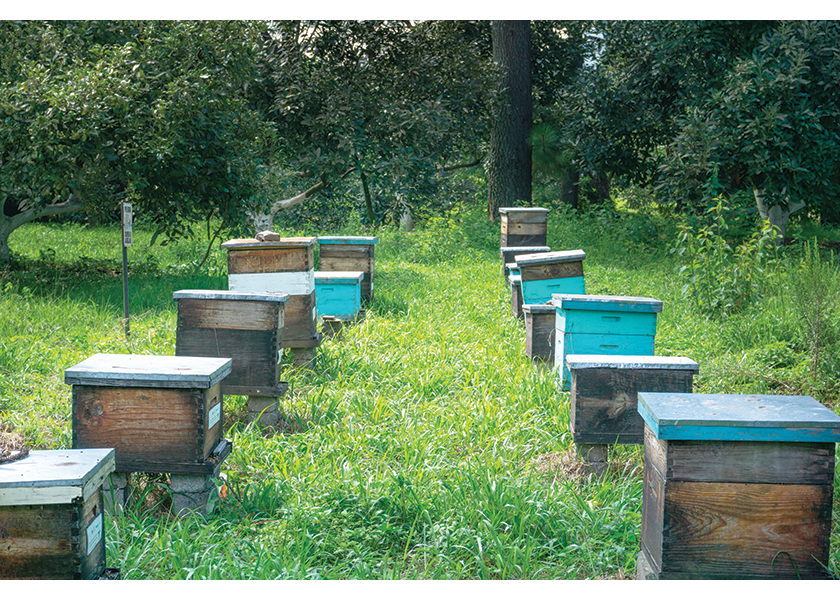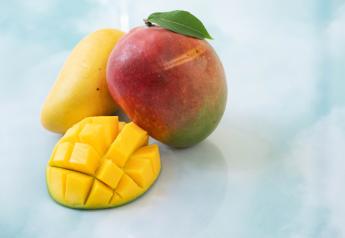Equal Exchange strives for sustainability


To find the latest news and resources related to conservation agriculture and sustainable food systems, visit AgWeb.com/ACAM.
Organic growing and sustainability go hand in hand.
Producing fruits and vegetables without applying toxic chemicals and by following other prudent growing practices can help preserve the soil and make farming possible for generations to come.
Perhaps no one knows that better than president Nicole Vitello and those who work for and with West Bridgewater, Mass.-based Oke USA Fruit Co./Equal Exchange Produce.
Equal Exchange markets avocados produced by three grower cooperatives representing 68 small-scale farmers in Michoacan, Mexico, Vitello said.
All of the cooperatives are Fair Trade certified, which means the avocados they produce are grown under conditions that meet rigorous social, environmental and economic standards that ensure safe conditions for workers, protect the environment and help farmers build and maintain sustainable livelihoods and even earn additional money to empower and uplift their communities, she said.
The farmers in the Equal Exchange supply chain care deeply about the environment, she added.
“They have been organic farmers for decades, and many for generations.”
Many growers in the co-ops used to grow using conventional methods but transitioned to organic decades ago for the health of their farms, their communities, their workers and their soil, Vitello said.
Through the Fair Trade program, Equal Exchange negotiates prices weekly with producers and pays an additional $1.36 per case as a Fair Trade premium.
The co-ops democratically decide how to apply the premium in their communities, Vitello said.
“They are committed to growing sustainably and have committed Fair Trade Premium dollars to various environmental projects, such as reforestation efforts, apiculture — or beekeeping — and supporting forest fire brigades,” she said.
As an example, members of PRAGOR, one of the three Equal Exchange cooperatives, has implemented apiculture projects in avocado orchards, supported reforestation by helping plant pine trees in the orchards in
collaboration with environmental groups and helped with the purchase of equipment for the forest brigade in the city of Periban, which is responsible for fighting forest fires.
By allocating funds, “The small producers truly feels that they are helping their community who belong to PRAGOR,” Vitello said.
“Organic produce is a growth category, and sustainability is on shoppers’ minds, especially a new generation of shoppers who are gravitating toward brands that can tell the story behind their products with authenticity and integrity,” Vitello said.
Equal Exchange helps accomplish that by connecting small farmers with consumers.
“Our goal around Equal Exchange as a brand, and our model of purchasing directly under Fair Trade terms, is designed to connect people instead of separate them,” she said.
The company’s avocado growth has been “exponential,” she added.
“We’re growing by 20%-25% year over year as a company.”
At the same time, more people want to know where their avocados are coming from, Vitello said
Growing organically is more difficult and often less profitable in the short term than growing conventionally, but investing in soil health, tree health and the health of the local community is a longer-term investment, Vitello said.
“Choosing to grow organically fosters the health of their soils, protects the pollinators on their farms and promotes the resiliency of their orchards for the long term.”
Equal Exchange is committed to connecting farmers with consumers through education about how avocados are grown and traded, she said.
“The more people learn about how their food is grown the more opportunities there will be for organics to grow both on the farm level and the retail level.”
Related articles:
Sunkist puts focus on sustainability
Smurfit Kappa plan sets goal of net zero emissions by 2050
Energy agreement will reduce Village Farms' fossil fuel use







